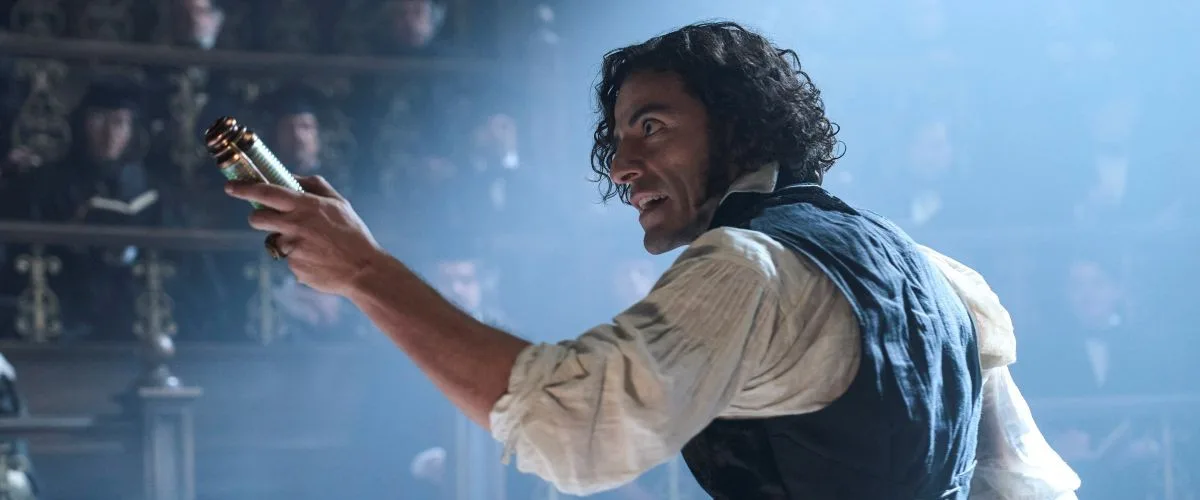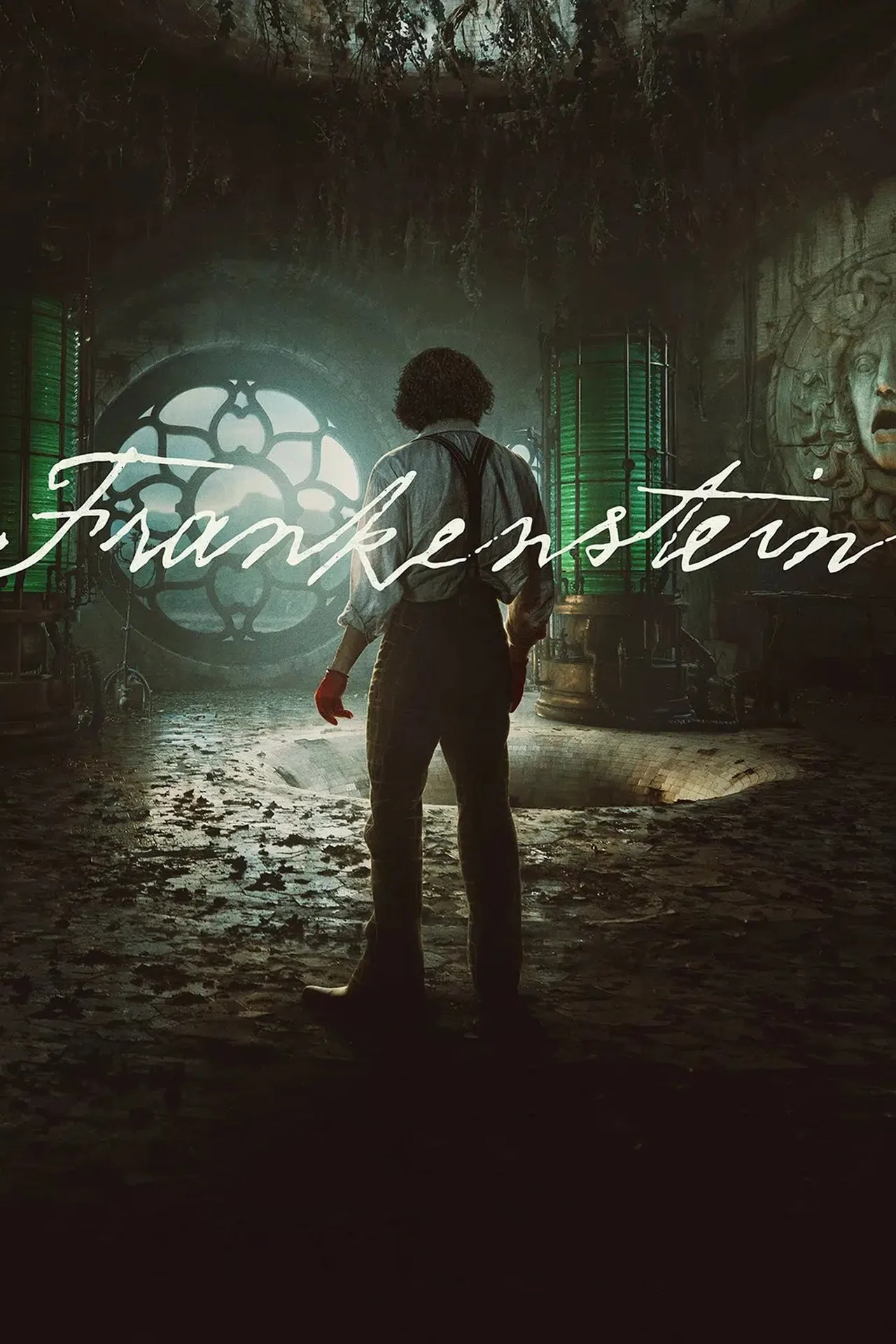There’s this canard that some critics like to throw around that artists should actually avoid realizing their “dream projects,” because whatever reality they achieve will not only not match their dream, but it will disappoint whatever audience to which the dream is presented. Guillermo Del Toro’s “Frankenstein” is a breathtaking coup, an exhilarating riposte to the conventional wisdom about dream projects. The writer-director makes something almost new, and definitely rich and strange, out of a story we all thought we knew well.
The 21st-century movie does so by keeping close to its 19th-century source. Not precisely close—Mary Shelley’s novel was complete as of 1818, and the movie is set in 1857, which is several years after the author’s own death. Placing the tale squarely in the Victorian era grounds it in period trappings more familiar to the contemporary viewer, one supposes; it also allows its visionary (at least at first) scientist Victor Frankenstein (Oscar Isaac) to place electricity more fully at his disposal when animating his creature.
But Del Toro’s scenario is thoroughly inspired by the original. The movie begins near the novel’s end, in the Arctic, where creator and creation have been switching roles of hunter and hunted. But the filmmaker spins out the tale in ways that make the movie not just jarring and frightening in the best horror tradition, but heartbreakingly poignant, expanding the humanity James Whale achieved for in his classic 1930s “Frankenstein” pictures, “Frankenstein” and “Bride of Frankenstein.”
Horror mavens will recognize visual cues from Whale, and from the Hammer Frankenstein films too, but Del Toro doesn’t lean too hard on his admiration for the cinematic tradition. The movie doesn’t wink; it believes in the story it’s telling and resolves to delve into all of its philosophical and spiritual implications.
Physically mistreated by a human “God” who insists on complete obedience, Jacob Elordi’s looming but vulnerable creature is born into abject misery. But once Victor Frankenstein’s creation achieves not only sentience but literacy, his torture truly begins. He wonders who he is, and where he belongs. He condemns himself as a monster in a very specific sense: an eternal outsider, at home nowhere, misunderstood and despised by all. Elordi is marvelous in conveying the monster’s intelligence, sensitivity and, yes, inherent gentleness—a shot of him holding and petting a mouse is quietly wrecking—but he puts across the power and rage beautifully as well. Oscar Isaac’s Victor has a manic quality, of course. He’s not just consumed with his scientific quest but obsessed with selling his peers and his family on the rightness of it. Ordinary ethics need not apply when you’re talking eternal life. This is why Shelley subtitled her novel “Or, A Modern Prometheus.” Victor believes he’s creating an ultimate good. Isaac sometimes steps over a line and enters conventional “mad scientist” territory, but never descends into camp. You understand what drives him while never quite “relating” to it, which is as it should be. Christoph Waltz turns in one of his most genuinely sympathetic performances as a mentor with hidden motives, and Mia Goth lives up to her name as the fiancée of Victor’s nephew, who turns out to share some of the morbid preoccupations of her possibly future in-law.
Del Toro’s sense of design, executed by his crackerjack production and costume people, including regular collaborators Tamara Deverell and Kate Hawley, constantly hits you with surprising bits of visual synchronicity. Frankenstein is a cut-up creation whose torso looks like a group of merged tectonic plates, while a dress that Goth’s Elizabeth wears features little green islands pressing up against one another. The frames are replete with Del Toro’s beloved reds and blacks (one of Victor’s dream figures is a winged crimson angel, or is it a demon?), resulting in a visual nightmare one can swoon in. Alexander Desplat’s score is appropriately insistent.
Years ago, Del Toro told the film journalist Edward Douglas, “I dream I can make the greatest Frankenstein ever, but then if you make it, you’ve made it. Whether it’s great or not, it’s done. You cannot dream about it anymore. That’s the tragedy of a filmmaker.” Del Toro should rest assured, this is a triumph, not a tragedy. And one can always dream again.
This review was filed from the world premiere at the Venice Film Festival on August 31. It opens theatrically on October 17, 2025, and on Netflix on November 7.




















